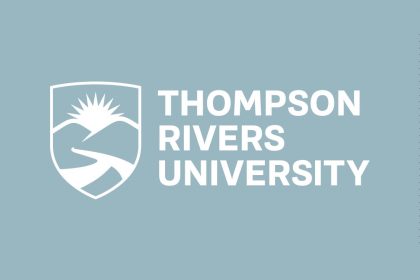The Pulling Together: Foundations Guide has been an inspiration for educators across the province, leading to well-attended webinars hosted by BCcampus about the guide, as well as its inclusion in the Law Society of British Columbia’s Bar admission course. For instructors seeking opportunities to improve diversity, equity, and inclusion in their classrooms, as well as in their world, the guides are an excellent place to start.
Post by BCcampus’ editorial team
Through a pair of webinars about the Pulling Together: Teachers and Instructors Guide over the past few months, Kory Wilson, executive director of Indigenous Initiatives and Partnerships at the British Columbia Institute of Technology and author of the Pulling Together: Foundations Guide, has created conversations about and awareness of effective ways to Indigenize and decolonize our classrooms, with a goal of reciprocity, relationship-building, and reconciliation.
“Inclusion is a choice,” explained Kory. “Through the webinars, I’ve learned that people are committed. They have informed questions and they’re taking this seriously. They want to be good allies, but there is still a lot of work to be done. It’s clear that all institutions are at very different levels, and it’s vital that we recognize that diversity leads to innovation, strength, and creativity.”
“The number of people who engaged through the webinars was very satisfying,” she continued, “as was seeing and meeting those people who are interested in supporting this work. This wouldn’t have been the same five or ten years ago.”
Opening Your Heart and Mind to Indigenization
“It’s serious business,” said Kory, “educating the next generation of people who are going to shape and mould the society we live in. The elders have a saying: ‘you have two ears and one mouth,’ so listen twice as much as you speak. Look for the truth. Do the hard work. Do the self-reflection. A lot of this work about academics and the academy is in your head, but if we’re really going to make a more inclusive academy, you have to close the gap between your head and your heart, because those lead to your hands. This work can be hard, but everyone has a responsibility and a role to play in ensuring that Indigenous voices are heard and included. Diversity is a reality, but inclusion is a choice, and I hope that everyone chooses inclusion.”
Professional Legal Training Course
The Law Society of British Columbia has incorporated the Pulling Together: Foundations Guide into their curriculum, building on work that began last fall.
“In the pre-pandemic times,” explained Dr. Annie Rochette, deputy director of the Professional Legal Training Course, “we piloted a cultural competency component in the Professional Legal Training Course with an interactive half-day workshop facilitated by Brad Marsden. The students were required to do a pre-workshop assessment, then some reflective questions after the workshop. When the pandemic hit, having large gatherings to do the workshop wasn’t an option, so we had to transform this component, as well as the entire PLTC, for online delivery.”
Self-Reflection
In this online module, PLTC uses a reflective and self-directed approach to encourage Indigenous cultural self-awareness for students. Students are required to complete pre-module reflective questions to create a baseline of their knowledge of Indigenization in British Columbia. The module features open source video and supplemental content, including the Foundations Guide. Based on their answers to the initial reflective questions, students can self-direct through the resources, which are divided into thematic sub-modules, such as the impacts of colonial laws and policies on Indigenous peoples, systemic racism in the legal system, Indigenous resistance, and resilience and Indigenous laws. Following the completion of the module, the students are asked to re-evaluate their understanding of Indigenization in B.C. and to reflect on their role in decolonization and reconciliation in the legal system and the legal profession.
“The current module is a transitional measure while the Indigenous cultural competency component of the PLTC is being developed,” shared Dr. Rochette. “Tools such as the Foundations Guide and its accompanying resources for curriculum developers and teachers are indispensable, and we are grateful for them. The Foundations Guide is an excellent resource to embed Indigenous content and intercultural competency into any course.”
The non-mandatory use of the open textbook, Pulling Together: Foundations Guide, will provide additional savings for students in this course, adding substantial student savings across the province since the launch of the open textbook program at BCcampus.
The Law Society of B.C. also has an annual Indigenous scholarship of $20,000 available to one eligible student, or divided equally between two.
Getting Started
“The guides are a great place to start,” said Kory, “but the first thing every person needs to do is to look around at where they are. Critically examine their institution: are there Indigenous people there? Check out the community. Start learning about the places and spaces where you live and work, and start learning as much as possible. It often starts with yourself. Recognize that if you are Indigenous, you have a role to play, and if you’re not Indigenous, you should self-reflect on how you can best contribute. A lot of this is about relationship-building and learning.”
Unrealized Potential
We recently completed a survey of the post-secondary institutions using the BCcampus Indigenization guides, and we discovered that the folx who were aware of the guides were making good use of them, but unfortunately, overall awareness of the guides is still low. You can help change this by reading and learning more about the guides and sharing your knowledge with the people in your institution.
Notable Quote
“Creating authentic and sustainable engagement is hard, and there will be challenges, but it’s exceptionally satisfying and can lead to greater societal change.”
—Kory Wilson, executive director, Indigenous Initiatives and Partnerships, British Columbia Institute of Technology
